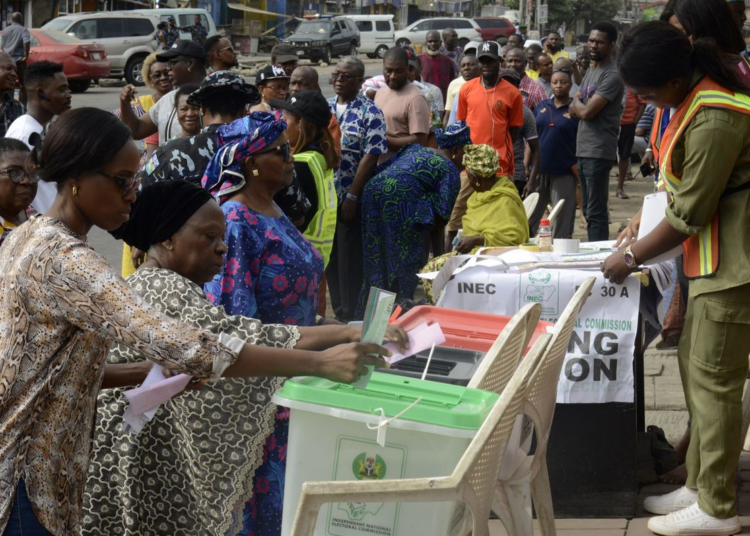The Independent National Electoral Commission (INEC) has released its internal assessment of the 2023 general elections, describing challenges posed by the currency redesign introduced by the Central Bank of Nigeria and arson attacks on its facilities.
In the 526-page report released yesterday, INEC said the elections were free and fair,, and largely reflected the will of the people.
The commission also spoke extensively on why the system failed during the presidential election leading to its inability to upload the results of the election in real time.
It said the glitch experienced in uploading the scanned images of PU presidential election result sheets on February 25, 2023 was “due to the inherent complexity within the system which was difficult to anticipate and mitigate.”
The report further noted that the first presidential election result sheet was successfully uploaded at 8.55pm on February 25 2023, after following interventions to resolve the error.
The commission, nonetheless, insisted that the glitch in the upload of the presidential results sheets to iREV did not affect the credibility of the election, adding that agents of political parties and security agents were given copies of polling station results after they were announced in public.
It said the election results showed that no party dominated it and the spread of results across party lines was better than in all elections that have been conducted in the country.
The National Commissioner and Chairman, Information and Voter Education Committee, Mr. Sam Olumekun, released a statement accompanying the report.
Olumekun said: “On Thursday, 22nd February 2024, the Commission convened for its weekly meeting, where the 2023 General Election Report was reviewed and approved for publication.
“In keeping with our tradition over the last four electoral cycles, and our commitment to transparency, we are pleased to announce the release of the official INEC report on the 2023 General Election.
“ This comprehensive 526-page document, structured into 13 chapters and enhanced with 60 tables, 14 boxes and 10 graphs, offers an in-depth analysis of the election’s key processes, achievements, and challenges, alongside valuable lessons learned.
“The Report showcases the election’s unparalleled diversity in party representation, demonstrating significant democratic progress.
“This election saw four political parties winning gubernatorial races, seven parties winning senatorial seats, eight in federal constituencies and nine in State legislatures, illustrating a broad shift in political representation across Nigeria.”
In the report, INEC said the 2023 General Election is perhaps the best planned and most innovative election in Nigeria.
The report read, “The election witnessed the highest number of eligible voters and voting locations across the country with the participation of over one million election duty officials and deployment of enormous logistic requirements including over 100,000 vehicles and about 4,000 boats protected by gunboats.
A major point of the report was the challenge posed by CBN’s currency swap, which limited cash withdrawals and the multiple attacks on its facilities across the nation.
The report read, “However, the implementation of electoral activities were not without challenges, the most devastating of which was the spate of attacks on Commission’s personnel and facilities by thugs, unknown gunpersons, and arsonists nationwide.
“During the period between the 2019 General Election and 12th December 2022, the Commission suffered over 50 attacks on its buildings and facilities in various LGAs and State Offices across 15 States of the federation in which vehicles, office equipment and election materials were destroyed.
“Furthermore, currency swap by the Central Bank of Nigeria and the limit placed on cash withdrawals from banks constituted encumbrances on the Commission’s operations for the payment to some unbanked service providers and the ability of particularly transport providers to service and fuel vehicles in boats and motorcycles in readiness for Election Duty.
“The prevailing fuel scarcity across the country and inadequate numbers of vehicles and boats for the transportation of election personnel and materials within the required timeframe posed a great challenge to the logistics plan for the election.
“ This is more so considering the size and diversity of Nigeria, as well the state of national infrastructure. Indeed, election is the largest and most complex logistics undertaking in Nigeria involving the simultaneous movement of personnel and material to 176,846 polling units across 8,809 wards spread across 774 Local Government Areas (LGAs) in 36 states and FCT.”










